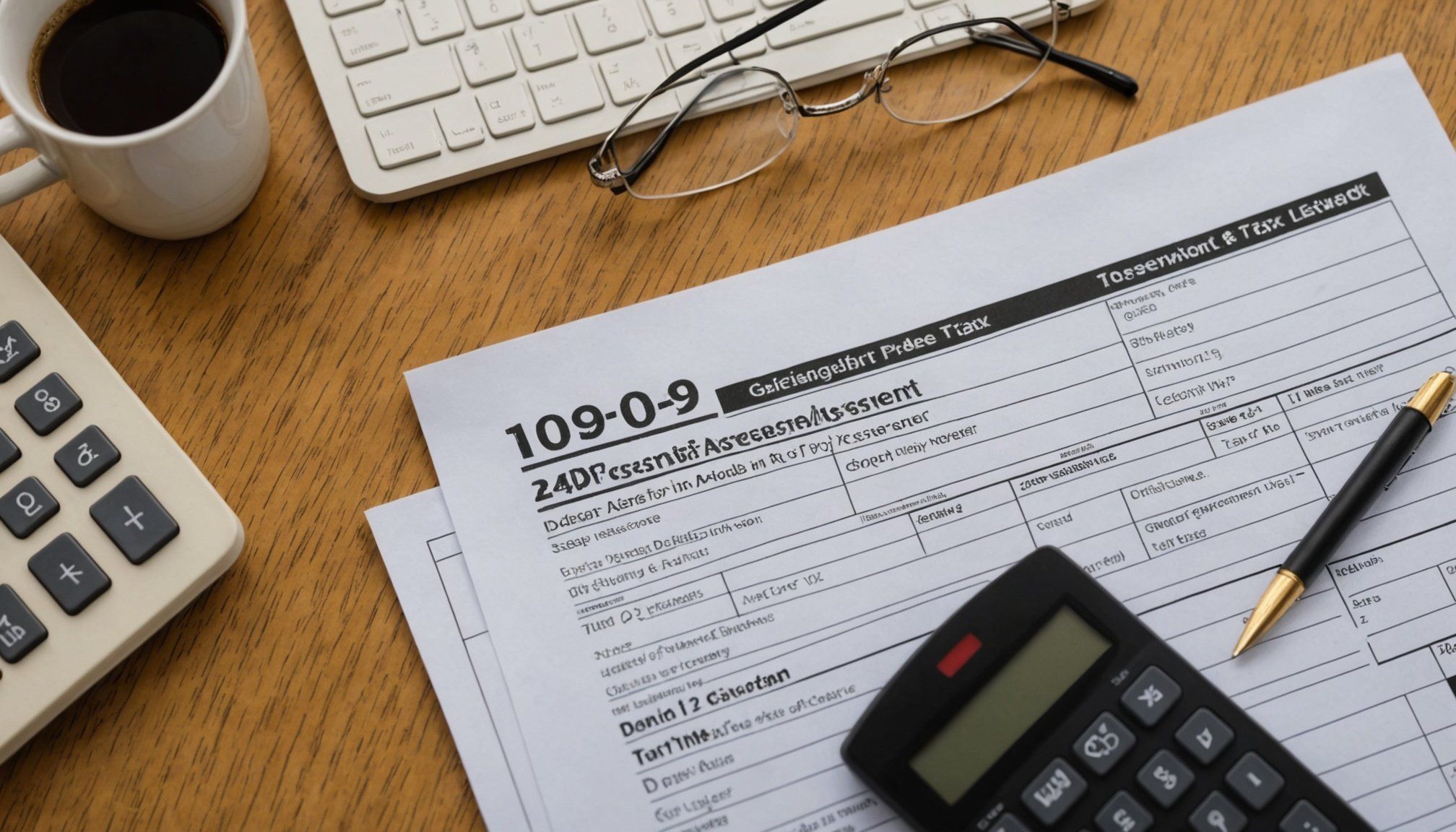Overview of Self-Assessment Tax Returns
In the UK tax system, a Self-Assessment Tax Return is required for individuals to report their income and figure out any tax due to be paid. This method is essential for those receiving income not handled through the standard PAYE (Pay As You Earn) system, such as freelancers, partners in a business, or those with income from savings and investments.
Understanding one’s tax obligations is crucial to avoid penalties and unexpected tax demands. The UK’s tax year runs from April 6 to April 5 the following calendar year. For example, if you’re filing a Self-Assessment Tax Return for the 2022/2023 tax year, your records should show all taxable earnings between April 6, 2022, and April 5, 2023.
Also read : Unlocking the Path: Essential Qualifications to Become a Primary School Teacher in the UK for 2023
Completing a Self-Assessment Tax Return involves accurately reporting all income streams and ensuring any tax reliefs or allowances are correctly applied. It is vital to gather all necessary documentation early to meet the January 31st online filing deadline without stress. Failure to file promptly often results in financial penalties. Consequently, an efficient approach to managing your tax affairs can lead to better financial planning and peace of mind.
Key Dates for the 2023-2024 Tax Year
Understanding the crucial Tax Deadlines for the 2023-2024 Tax Year ensures you’re not missing critical steps in the filing process.
Also to read : Unlocking 2023: Essential Energy Efficiency Standards for UK Rental Properties You Need to Know
Registration Deadline
Before you can file any returns, you need to meet the registration requirements by the deadline. Typically, this involves notifying the tax authority of your need to file, especially significant for first-time filers. The precise date varies, so it’s essential to check the official guidelines specific to your situation. Missing this deadline can result in penalties.
Paper Tax Return Submission Deadline
For those opting to file via traditional means, the submission deadline for paper tax returns falls earlier than online returns. Historically, this deadline often lands in October, with exact dates announced by relevant authorities each year. Filing early can prevent last-minute errors and ensure your taxes are handled without stress.
Online Tax Return Submission Deadline
Online submissions afford more flexibility but have their own Important Dates. Often set for the end of January, this deadline allows you to use digital resources to file more efficiently. However, make sure your registration is completed beforehand. Electronic filing can provide real-time confirmation and quicker processing times.
Payment Deadlines for Self-Assessment
Understanding the payment deadlines for **Self-Assessment* is crucial to avoid penalties. The tax system requires individuals to make scheduled **self-assessment payments** throughout the tax year. Let’s delve into the specifics of each payment.
First Payment on Account
The first payment on account is typically due on 31 January of the following year after the tax year. For instance, if the tax year ends on 5 April 2023, your first payment is due by 31 January 2024. This payment covers 50% of the previous year’s tax liability. It’s an advance payment towards the current year’s taxes, ensuring you stay on top of tax obligations.
Second Payment on Account
The second payment deadline falls on 31 July. Its purpose, like the first payment, is to cover another 50% of your previous year’s tax. This ensures that by the end of summer, most individuals have paid a substantial portion of their annual tax liability. Ensuring timely payments here reduces the burden of the final payment.
Payment of Any Tax Owed
The final deadline for any outstanding tax is again 31 January of the year following the tax period. This covers any outstanding balance for the previous tax year and settles your full liability. Timely payments help avoid interest and penalties.
Penalties for Late Submission and Payment
Failing to submit your tax returns on time can lead to significant tax penalties. If you miss the filing deadline, you may face late filing fines, which can quickly add up. For instance, the penalty for late submission can be 5% of the unpaid taxes for each month your return is late, capped at 25% of your unpaid taxes. This makes timely filing crucial to avoid unnecessary charges.
The financial implications extend beyond mere fines, hitting taxpayers’ wallets harder with late payment penalties. This additional charge typically accrues from the original due date of the return until the taxes are paid in full. Interest on unpaid taxes compounds daily, increasing the financial burden.
Persistent non-compliance with tax filing obligations can lead to more severe tax return consequences. Beyond financial strains, taxpayers might face potential legal consequences. The tax authorities may resort to collecting unpaid taxes through enforced measures, such as placing a lien on property or garnishing wages. In extreme cases, legal action could be pursued, leading to further penalties, court costs, or even imprisonment.
Understanding these penalties underscores the importance of meeting tax deadlines to safeguard your financial and legal standing.
Resources for Filing Self-Assessment Tax Returns
When it comes to navigating the maze of self-assessment tax returns, having the right filing resources can make a significant difference. Whether you’re a seasoned pro or filing for the first time, tapping into available resources is essential.
Official HMRC Website
The HMRC Guidance is the ultimate repository of reliable information. On their official website, you’ll find comprehensive guides that cover everything from eligibility criteria to step-by-step filing instructions. It also includes useful tools like tax calculators and a FAQs section to address common concerns, making it an invaluable resource for taxpayers.
Online Filing Platforms
For a more streamlined experience, consider using online filing platforms. These platforms simplify the process by offering intuitive interfaces and helpful prompts. They also provide automated updates on tax codes and allow for easy submission of supporting documents. Options vary, but many offer some form of integration with HMRC, ensuring that your information is submitted securely and correctly.
Professional Tax Advice
For those looking for more personalised assistance, professional tax advice can be invaluable. Hiring a tax advisor offers tailored guidance, ensuring that all avenues for tax efficiency are explored. Advisors can also provide insights into legal complexities, helping taxpayers avoid costly errors. The investment in expert advice can lead to more accurate filings and a greater sense of confidence.











